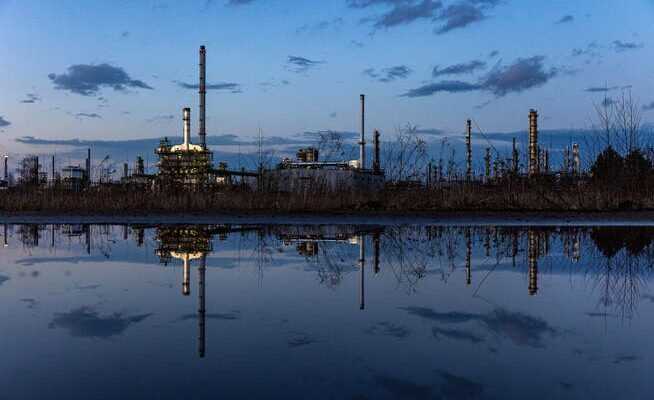Human suffering is enormous, economic growth in Europe is slowing down and friction is increasing worldwide. That’s why everything should be done now that can help to end the war in Ukraine quickly. A sharp reduction in purchases of Russian oil and gas is one of them.
The oil refinery in Schwedt, Germany, is owned by the Russian state Rosneft, processes Russian oil and supplies Berlin and Brandenburg. That brings a lot of money to the Russian state.
The Russian military has launched a new offensive in eastern Ukraine. Almost eight weeks after the start of the war, there is no end in sight to the killing, fear of death and starvation. Around five million Ukrainians have already fled to Europe and had to leave behind most of what they had worked for. Tens of thousands, perhaps even significantly more, have already left Russia from Russia, at the cost of major losses.
Europe and the rest of the world are also suffering from the insane idea of the Kremlin ruler Vladimir Putin that he has to invade the “brother country” Ukraine and liberate it from its independence.
For the current year, the International Monetary Fund (IMF) has reduced its growth forecast for the global economy by 0.6 percentage points to 3.6 percent. The relatively heavily industrialised, export-oriented Germany is likely to be hit hardest. For this, the IMF now expects 1.7 percentage points less growth in gross domestic product (GDP) than before. However, German GDP should still grow decently (2.1 percent), as should Switzerland’s (2.2) and Austria’s (2.6).
But the longer the war lasts, the greater not only the human tragedies but also the economic upheavals. A painful braking maneuver is imminent with record-high, persistent inflation. Should the dispute between Russia, the West and China continue, the global economy could even split into separate, competing spaces, which would be extremely inefficient and expensive.
Germany, Austria and Hungary in particular have so far resisted at least a partial embargo on the import of Russian oil and natural gas. As a result, at the same time as some have called for a boycott of Nestlé if the company still sells Kitkat in Russia, Europe According to calculations by think tank Crea bought oil, natural gas and coal from Russia for more than 37 billion euros. That is almost 700 million euros per day.
Now the EU has declared that it wants to reduce imports of Russian natural gas by two-thirds by the end of the year. Against this background, it is difficult to understand why countries like Germany are so opposed to a clearly announced, at least partial, embargo on Russian oil and natural gas. And even against the variant proposed by the Italian Prime Minister Mario Draghi, with combined purchasing power only paying a significantly lower price.
Of course, every reduction in Russian energy supplies to Europe harbors the risk of increased economic friction in the short term. But the supposed conflict of goals between growth and embargo is false, at least as long as it can be expected that Putin will feel more compelled to end his “special operation” in Ukraine early if the West no longer indirectly finances it.
In his latest World Economic Outlook The IMF has calculated that an additional reduction in Russian oil and gas exports by 10 percent in the current year and 20 percent in 2023 would cost the EU around another 3 percentage points and the world as a whole 2 percentage points in growth. This estimate largely coincides with such for example the Kiel Institute for the World Economy.
Like the German Chancellor Olaf Scholz, one might object that too little account is taken of painful adjustment effects. But that doesn’t change the fundamentals: the faster Putin and his entourage are forced to accept that this war is a terrible mistake and a solution for nothing, the better for Ukraine, the world and also for Russia. A (partial) embargo on Russian energy imports will hit Europe’s economy somewhat more severely in the short term. If it is successful, the medium-term damage will be less and the economic recovery will then be all the faster. That should definitely be worth a try.
